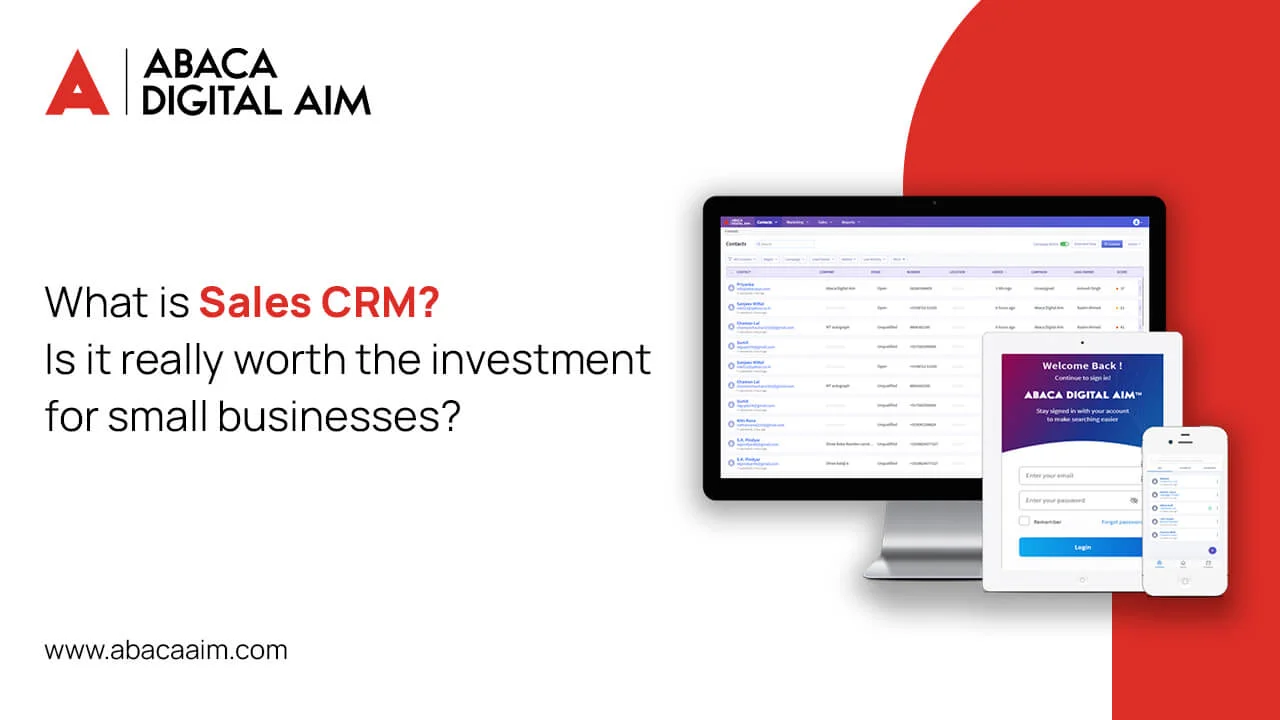
Salespeople have a love-hate relationship with sales management software.
An average sales Joe may find it to be just another way for bosses to keep track of their work. Or another extra thing to distract them from their main task “selling”.
CRM actually improves the lives of sales teams.
Salespeople need CRM.
And you know why?
Sales CRM software literally helps to boost sales.
CRM applications can help increase sales by up to 29%, sales productivity by up to 34% and sales forecast accuracy by 42%.
Sales management software can be game-changing if implemented right.
And since those are the salespeople that need CRM the most, in this blog post we will bring out what is sales CRM and why it is worth every penny.
Sales customer relationship management (CRM) software is a tool that helps businesses manage and analyze customer interactions and data throughout the customer lifecycle. The goal is to improve customer relationships and drive sales growth. By managing their relationships and sales operations, the best sales management software saves them time and effort and aids in organizing the sales process.
The biggest challenges that sales teams face are:
1) how to grade and follow up on leads and
2) how to prioritize sales activities.
Businesses frequently use multiple tools for lead generation, assigning leads to sales teams, monitoring sales pipelines, and performing sales analysis in order to structure the sales process. This could undermine the goal of using a centralized sales method and further lower productivity. However, an all-inclusive sales management tool can assist in overcoming these hiccups and automating the sales procedure to quicken expansion.
The long-term success of any organization depends on developing trusting relationships with the customers. And the greatest approach to satisfy customers is to be aware of their preferences and cater to them. The best sales CRM for small businesses does all that and more. There are a number of benefits of a sales CRM that can bring in more business, making it all worthwhile. Some key benefits include:
1. Saves Time:
You can organize all your customer details in a Sales management tool so that your sales team can easily access them and streamline the entire sales process.
2. Workflow Automation:
The sales team can reduce the amount of manual data input work by using sales management software. The platform’s workflow automation feature enables data entry and the procedure that necessitates sending follow-up emails to be automated. The sales team may now concentrate more on closing deals as a result.
3. Stay Updated on Your Pipeline:
The ability to track leads and manage sales opportunities is a key feature of many sales management software solutions. This can help sales teams prioritize their efforts and track the progress of potential deals. Look for software that can help you track and manage leads and sales opportunities from initial contact to close.
4. Accomplish Sales Goals:
Sales management software allows tracking key performance indicators (KPIs) such as sales numbers, conversion rates, and win/loss ratios. It should also provide tools for analyzing this data to identify trends and areas for improvement. This promotes quick lead closing and concentrates attention on high-value possibilities.
5. Goal setting and forecasting:
Good sales management software should allow managers to set goals for their team and provide tools for forecasting future performance. Look for software that can help you set and track goals for your sales team, such as quotas or target metrics. This can help teams stay on track and identify any potential issues in advance.
6. Promotes Teamwork:
Sales teams often rely on collaboration and communication to be effective. Look for software that includes tools for team communication, such as chat or video conferencing, project management features, as well as the ability to share documents and other resources.
7. Opportunities for growth:
If your business uses other software tools, such as a customer relationship management (CRM) system or an enterprise resource planning (ERP) system, it’s important to look for sales management software that can integrate with these tools. This can help streamline processes and avoid duplication of effort. This makes room for any future collaboration opportunities.
However, the cost of sales management software can vary widely, and it’s important for businesses to consider whether the investment is worth it for their particular needs. Some factors to consider when determining the value of sales management software include the size and complexity of the sales team, the volume of sales, and the potential return on investment.
Ultimately, the decision to invest in sales management software should be based on a careful analysis of the costs and benefits for the specific business. It may be worth consulting with a software expert or doing some research to compare different options and determine the best fit.
Any sales team will perform better if CRM is adopted and used properly, and salespeople will perform better in four areas that are crucial for them:
Finally, the best sales management software improves the mobility of salespeople by enabling access to the database and all of your work-related actions from various devices and locations.
If you’d like to learn more about how ABACA CRM can help your sales team, sign up for a free demo